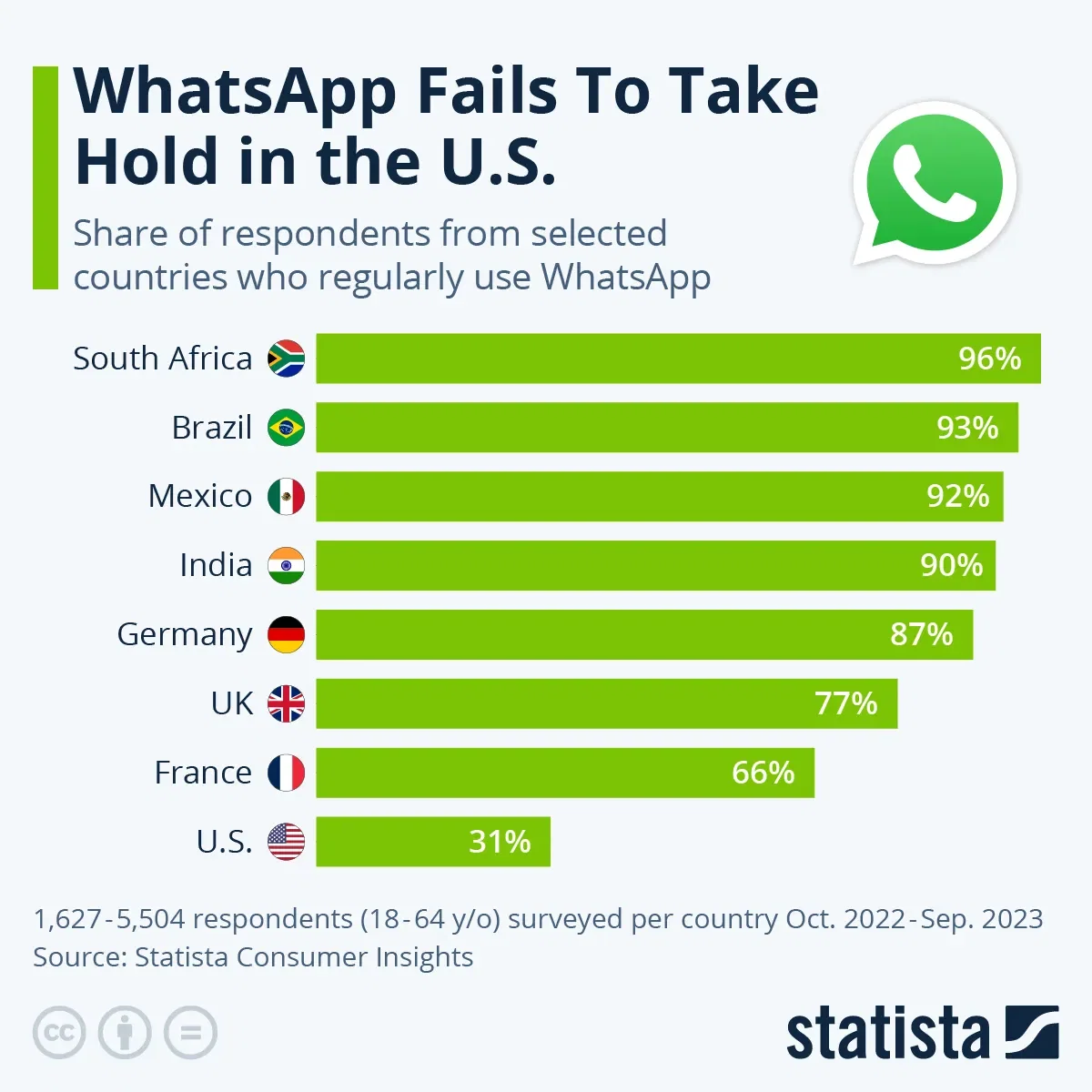Where Data Tells the Story
© Voronoi 2026. All rights reserved.

Analysts from the World Economic Forum have forecast that disinformation will become increasingly personalized to its recipients and will be disseminated through more “opaque” messaging platforms such as WhatsApp or WeChat. This is as detailed in the WEF 2024 Global Risk Report.
Where Facebook gained notoriety for its role in the U.S. elections of 2016 among others, Whatsapp too has been cited in recent years for being used as a tool for the spread of misinformation in elections. According to Vice, this was the case in India’s 2019 election.
The following chart uses data from Statista’s Consumer Insights survey to look at just how widespread this platform is among smartphone users in various countries around the world. WhatsApp is popular in many of the countries surveyed, with particularly high rates in South Africa, Brazil, Mexico and India, where it was used by at least 90 percent of online respondents in each.
In the United States, the platform has not permeated the market to the same extent, with most American smartphone users saying that they usually use Facebook Messenger (81 percent). Multiple options were possible for this question. In China, where WhatsApp is not permitted, the homegrown competitor WeChat is used by 87 percent of Chinese respondents, followed by TenCentQQ with 43 percent and DingTalk by 42 percent.
WEF analysts warn that misinformation and disinformation are a growing problem, stating: “The capacity of social media companies to ensure platform integrity will likely be overwhelmed in the face of multiple overlapping campaigns.” They add that while research and development into the area is well underway, it is still relatively underfunded in comparison to the underlying technology.